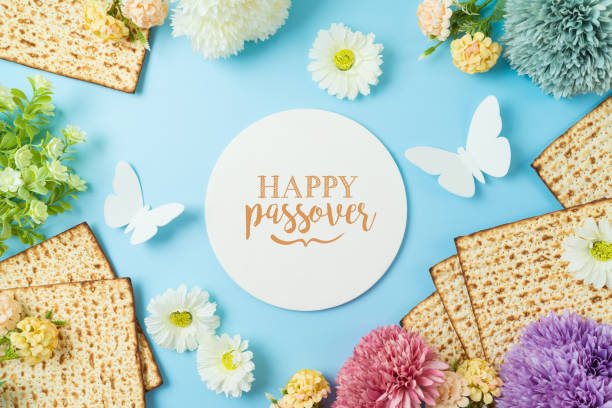Passover, Pesach in Hebrew, is more than an ancient festival. It is a divine invitation to remember Yah’s faithfulness, to reflect on the cost of freedom and to realign our lives with His promises. For those who follow Christ, this sacred season carries even greater depth, pointing directly to the redemptive power of the Messiah’s sacrifice: the fulfilment of all that Passover foreshadows.
As we journey through this holy time, we are reminded not only of the deliverance of Israel from Egypt, but of the greater deliverance offered to us through Christ, our Passover Lamb.
The origin of passover: a covenant of deliverance
The story begins in Exodus, as Yah prepares to free His people from centuries of bondage. On the night of the final plague, He commands the Israelites to mark their doorposts with the blood of a lamb, a sign of protection and covenant.
“And the blood shall be to you for a token upon the houses where ye are: and when I see the blood, I will pass over you.” — Exodus 12:13
That night became a lasting memorial: a celebration of divine intervention, mercy and faithfulness. It’s this moment that defines Passover as a season of remembrance: a reminder that Yah sees, saves and sustains His people.
Jesus Christ and the fulfilment of redemption
For believers in Christ, Passover isn’t just a remembrance of the past, it is a revelation of the present. Christ observed Passover with His disciples before His crucifixion, transforming the traditional Seder into a prophetic declaration of His role as the ultimate sacrifice.
“Behold the Lamb of God, which taketh away the sin of the world.” — John 1:29
Jesus is:
- The spotless Lamb, without blemish or sin (1 Peter 1:19).
- The one whose blood redeems us from death (Ephesians 1:7).
- The fulfilment of Yah’s promise of deliverance: not from Egypt but from sin, shame and spiritual bondage.
In Him, the deeper meaning of Passover is revealed. It is not just about liberation from a place, but liberation into purpose.
In a world that often forgets its spiritual roots, observing Passover invites us to return: to Yah’s truth, Jesus’ sacrifice and the story we are still a part of. It offers us space to:
- Remember the cost of redemption.
- Reflect on our journey from bondage to freedom.
- Renew our commitment to walk in Yah’s ways.
It’s more than tradition, it’s a moment of transformation.
Honoring it in a personal way
You don’t need to follow strict customs to observe Passover meaningfully. This season is an opportunity to draw near to Yah in reverence and remembrance.
1. Read the Scriptures
Start with Exodus 12–14, then read the Gospels’ account of Jesus’ final Passover in Matthew 26 or Luke 22. Let the stories unfold as one continuous thread of redemption.
2. Reflect with Intention
Ask Yah to show you where freedom is needed; in your thoughts, habits or heart. Use this time to lay burdens down and realign with His truth.
3. Share a Simple Passover Meal
A symbolic meal can become a sacred moment. Incorporate unleavened bread, grape juice or wine and simple dishes to represent Yah’s provision. It’s not about ritual but remembrance.
Passover as a Season of Renewal
Just as spring revives the earth, Passover calls us to awaken spiritually. It’s a time to release what no longer serves, to step out of spiritual stagnation, and to walk boldly in the liberty Yahusha offers.
“Stand fast therefore in the liberty wherewith Christ hath made us free.” — Galatians 5:1
True freedom is found not in doing whatever we please—but in becoming who we were created to be.
Passover is Yah’s reminder that we are a redeemed people. Through Christ, we are no longer slaves to fear, shame or sin. We are called, chosen and covered by the blood of the Lamb.
“For even Christ our Passover is sacrificed for us.” — 1 Corinthians 5:7
This week, may we slow down long enough to remember. May we reflect on Yah’s great love and Christ’s perfect gift. And may our hearts be renewed in the truth that we are forever marked by mercy.


13 comments
Good https://is.gd/tpjNyL
Good https://is.gd/tpjNyL
Very good https://is.gd/tpjNyL
Very good https://shorturl.at/2breu
Good https://shorturl.at/2breu
Very good https://lc.cx/xjXBQT
Good https://lc.cx/xjXBQT
Very good https://lc.cx/xjXBQT
Very good https://lc.cx/xjXBQT
Very good https://lc.cx/xjXBQT
Very good https://lc.cx/xjXBQT
Very good https://t.ly/tndaA
Awesome https://t.ly/tndaA
Comments are closed.